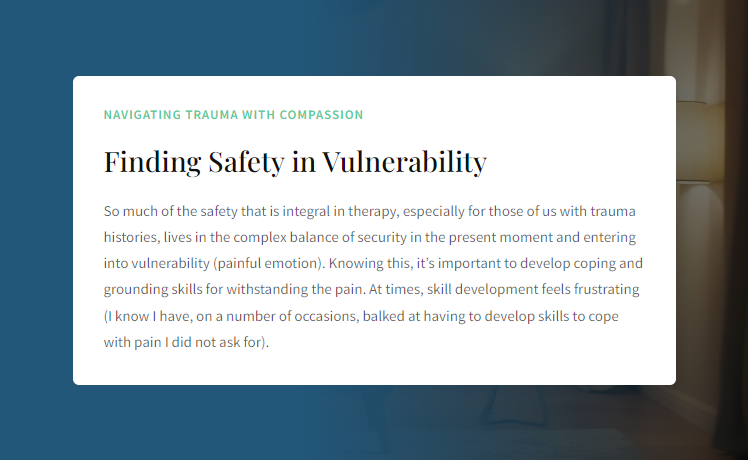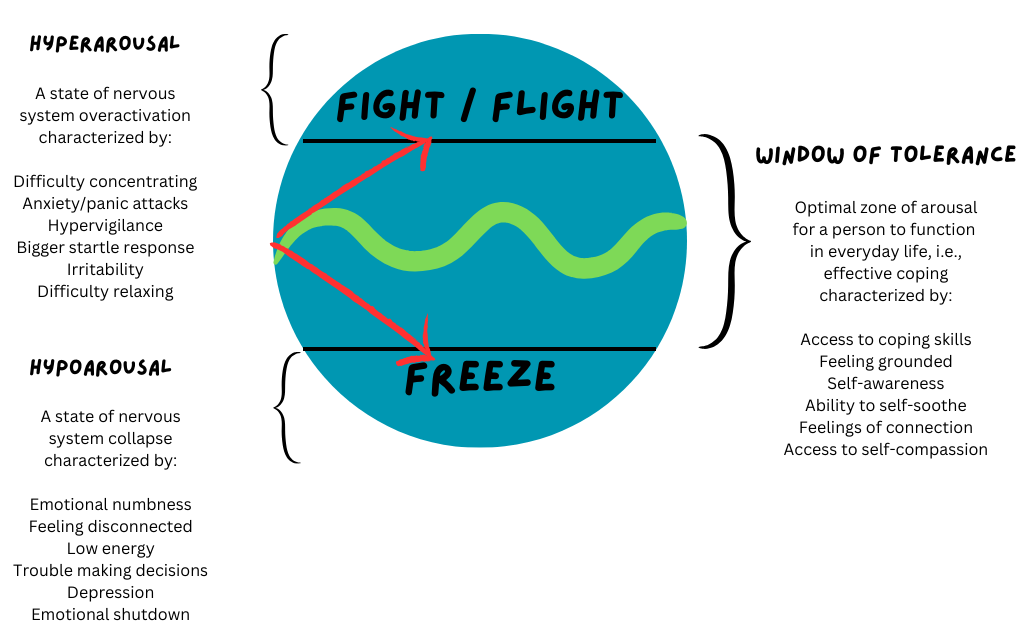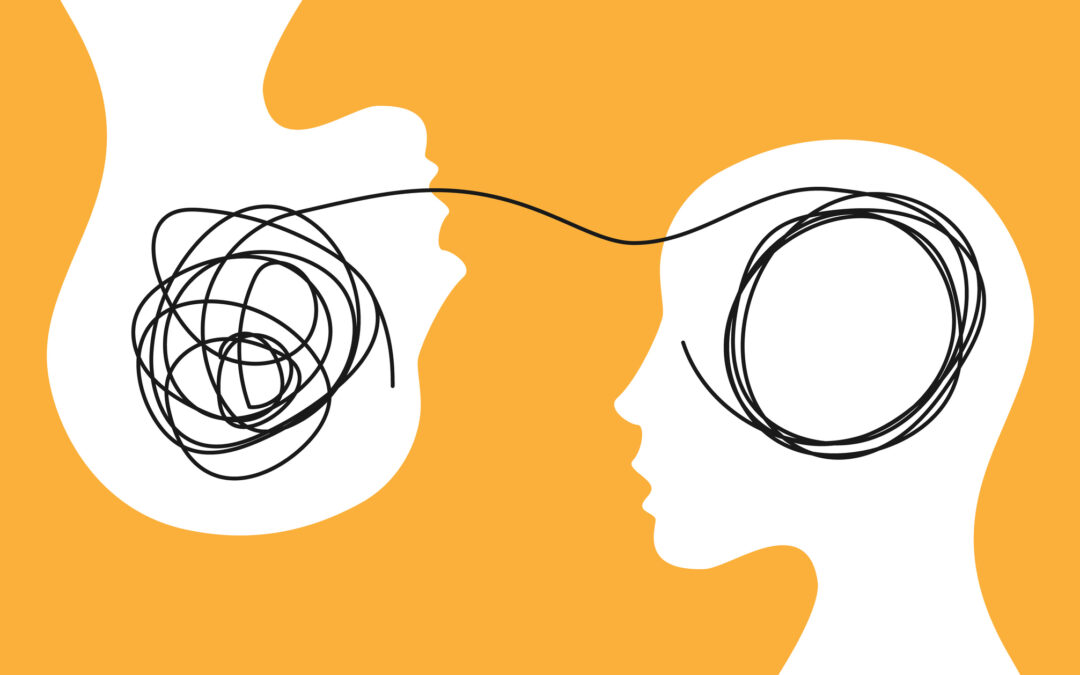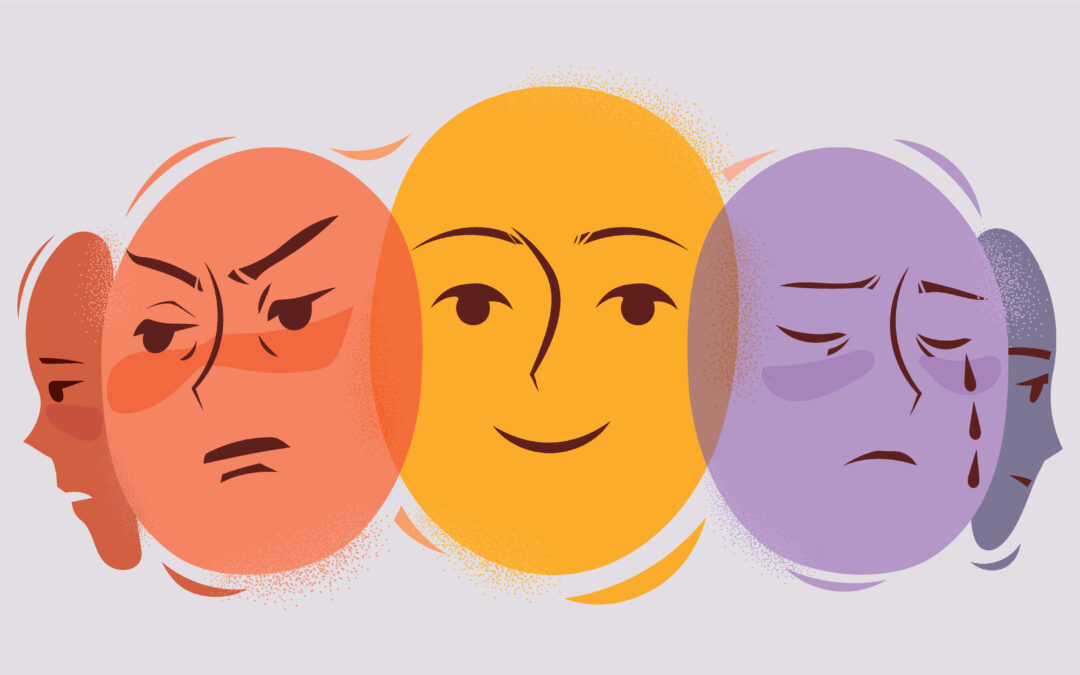
Strengthening Coping Strategies
Widening the Window of Tolerance
The more adept we become at coping with distress, the more we strengthen our ability to experience the here-and-now sense of safety in therapy as we face our pain. When your therapist helps you ground, develop coping skills, notice the present moment, etc., they are helping you widen what we call the ‘Window of Tolerance.’ Maximum therapeutic benefit in an appointment with your counselor (or in coping outside session) happens when you are able to maintain awareness of the both/and of pain and safety.
Practical Applications
Everyday Examples of Staying Within the Window
Remaining inside your window of tolerance doesn’t mean you don’t experience emotions. It means we minimize the distress that occurs when a painful emotion is present. Essentially, existing within that window means you can experience sadness, fear, or anger without triggering a survival (fight/flight/freeze) response. If you have ever become frustrated with a distracted driver while maintaining your ability to focus on the road, become upset with a partner and took space away to process emotions before resolving conflict, or made a mistake on a project and were able to reframe negative thoughts about yourself – You have remained within your window.
Reflections on Progress
Becoming a Harbor of Safety
Progress in therapy does not mean something isn’t sad or scary over time. It means you become your own harbor of safety and remain compassionate and present with yourself as you heal. Safety is not always necessarily the absence of danger; safety is your ability to connect with yourself, your support system, or your coping skills when danger is present.

The Balance of Safety and Vulnerability in Therapy
In therapy, especially for those with trauma histories, safety is a delicate balance between feeling secure in the present moment and being open to vulnerability. This balance is crucial for healing and growth.
Expanding the Window of Tolerance
When your therapist helps you ground yourself, develop coping skills, and stay present, they are helping you expand your Window of Tolerance. This allows you to experience emotions without triggering a survival response, enabling you to process and heal more effectively.
Developing Coping and Grounding Skills
Developing coping and grounding skills is essential for managing painful emotions. Although it can be frustrating to build these skills, they are vital for maintaining a sense of safety and stability during therapy.

Introducing EMDR Intensives
Are you feeling weighed down by unresolved trauma? Do you wish there was a quicker way to find relief and start healing? We have exciting news! Star Meadow Counseling is now offering EMDR Intensives, a new and powerful way to process trauma. These extended therapy...

Healing from Narcissistic or Emotional Abuse: A Journey to Rediscovery and Resilience
Abuse, whether labeled as narcissistic or emotional, can leave deep, lasting scars on your self-esteem, sense of self-worth, and overall mental well-being. Many people who have experienced this may feel lost, confused, and question their own reality. If you are...

The Power of Community in Trauma Survivorship
Consistent across human history has been the importance of community. Safety in numbers against a predator, the sharing of resources, or simply holding space for one another are all integral to our survival. Yet, largely, our individualistic culture places emphasis on...

From Pain to Power: The Narrative Trauma Therapy Experience
In the journey of healing from trauma, the power of storytelling is often underestimated. Yet, within the realm of mental health counseling, narrative trauma therapy stands as a profound method for fostering healing and resilience. By harnessing the narrative of one's...

Empowering the Self: An Introduction to Internal Family Systems Therapy
Understanding the Internal Family Systems Model Developed by Dr. Richard C. Schwartz in the 1980s, Internal Family Systems Therapy draws on a unique perspective that views the human psyche as a family system. Just as a family consists of different members with...

